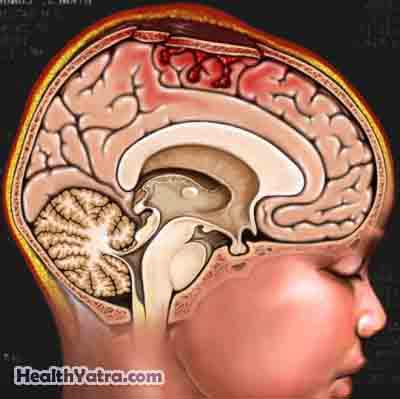परिभाषा
Intellectual disability begins in childhood. People with intellectual disability have limits in their mental functioning seen in below-average intelligence (IQ) tests and in their ability to communicate, socialize, and take care of their everyday needs. The degree of disability can vary from person to person. It can be categorized as mild, moderate, severe, or profound.
Some causes of intellectual disability can be prevented with proper medical care. Children diagnosed with an intellectual disability are most successful when they get help early in life. If you suspect that your child may have an intellectual disability, contact your doctor.
का कारण बनता है
Several hundred causes of intellectual disability have been discovered, but many are still unknown. The most common ones are:
- Biomedical causes resulting from:
- Abnormal genes inherited from parents
- Errors when genes combine, such as Down syndrome and Fragile X syndrome
- पोषक तत्वों की कमी
- Metabolic conditions, such as phenylketonuria (PKU), galactosemia, andcongenital hypothyroidism
- Developmental brain abnormality, such as hydrocephalus and brain malformation
- Infections during pregnancy, such as:
- HIV
- टोक्सोप्लाज़मोसिज़
- Herpes simplex
- रूबेला
- उपदंश
- CMV infection
- Behavioral issues during pregnancy, such as:
- धूम्रपान
- Use of medicines, drugs, or alcohol that affect the developing fetus
- कुपोषण
- Contraction of certain illnesses or infections while pregnant
- Problems at birth, such as:
- Premature delivery or low birth weight
- Baby doesn’t get enough oxygen during birth
- Baby is injured during birth
- Factors during childhood, such as:
- पोषक तत्वों की कमी
- Illnesses or infections that affect the brain, including meningitis, encephalitis,chickenpox, whooping cough, and measles
- Exposure to lead, mercury, and other toxins
- Head injury or near drowning
- Social factors, such as child stimulation and adult responsiveness
- Educational deficiencies


जोखिम कारक
A child could be at higher risk for intellectual disability due to any of the causes listed above, or due to intellectual disability in other family members. If you are concerned that your child is at risk, tell your child’s doctor.
लक्षण
Symptoms appear before a child reaches age 18. Symptoms vary depending on the degree of the intellectual disability. If you think your child has any of these symptoms, do not assume it is due to intellectual disability. These symptoms may be caused by other, less serious health conditions.
लक्षणों में शामिल हैं:
- Learning and developing more slowly than other children of the same age
- Difficulty communicating or socializing with others
- Lower than average scores on IQ tests
- Trouble learning in school
- Inability to do everyday things like getting dressed or using the bathroom without help
- Difficulty hearing, seeing, walking, or talking
- Inability to think logically
The following categories are often used to describe the level of intellectual disability:
Mild
- IQ 50-70
- Slower than normal in all areas
- No unusual physical signs
- Can learn practical skills
- Reading and math skills up to grades 3-6
- Can conform socially
- Can learn daily task skills
- Functions in society
Moderate
- IQ 35-49
- Noticeable delays, particularly speech
- May have unusual physical signs
- Can learn simple communication
- Can learn elementary health and safety skills
- Can participate in simple activities and self-care
- Can perform supervised tasks
- Can travel alone to familiar places
Severe
- IQ 20-34
- Significant delays in some areas; may walk late
- Little or no communication skills, but some understanding of speech with some response
- Can be taught daily routines and repetitive activities
- May be trained in simple self-care
- Needs direction and supervision socially
Profound
- IQ <20
- Significant delays in all areas
- Congenital abnormalities present
- Needs close supervision
- Requires attendant care
- May respond to regular physical and social activity
- Not capable of self-care
निदान
If you suspect your child is not developing skills on time, tell the doctor as soon as possible. Your doctor will ask about your child’s symptoms and medical history. A physical exam will be done. Standardized tests may be given that measure:
- Intelligence—IQ tests measure a person’s ability to do things such as think abstractly, learn, and solve problems. A child may have intellectual disability if IQ test results are 70 or below.
- Adaptive behavior—These are skills needed to function in everyday life, including:
- Conceptual skills like reading and writing
- Social skills like responsibility and self-esteem
- Practical skills like the ability to eat, use the bathroom, and get dressed
Children with intellectual disability have a higher risk for other disabilities such ashearing impairment, visual problems, seizures, attention deficit hyperactivity disorder, or orthopaedic conditions. Additional testing may be needed to check for other conditions.
उपचार
Talk with your doctor about the best treatment plan for your child. Treatment is most helpful if it begins as early as possible. Treatment includes:
- Early intervention programming for infants and toddlers up to age three
- Family counseling
- Human development training, including emotional skills and hand-eye coordination
- Special education programs
- Life skills training, such as preparing food, bathing
- Job coaching
- Social opportunities
- Housing services
रोकथाम
To help reduce your child’s chance of becoming intellectually disabled, take the following steps:
- During pregnancy:
- यदि आप धूम्रपान करते हैं, तो छोड़ दें।
- Don’t drink alcohol or use drugs.
- Eat a healthful diet —one that is low in saturated fat and rich in whole grains, fruits, and vegetables.
- Add extra folic acid to your diet.
- See your doctor regularly.
- After birth:
- Have your newborn screened for conditions that may produce intellectual disability.
- Have your child properly immunized.
- Schedule regular visits to the pediatrician.
- Use child safety seats and bicycle helmets.
- Remove lead-based paint from your home.
- Keep poisonous household products out of reach .
- Aspirin is not recommended for children or teens with a current or recent viral infection. This is because of the risk of Reye’s syndrome, which can cause neurological problems. Ask your doctor which medicines are safe for your child.
